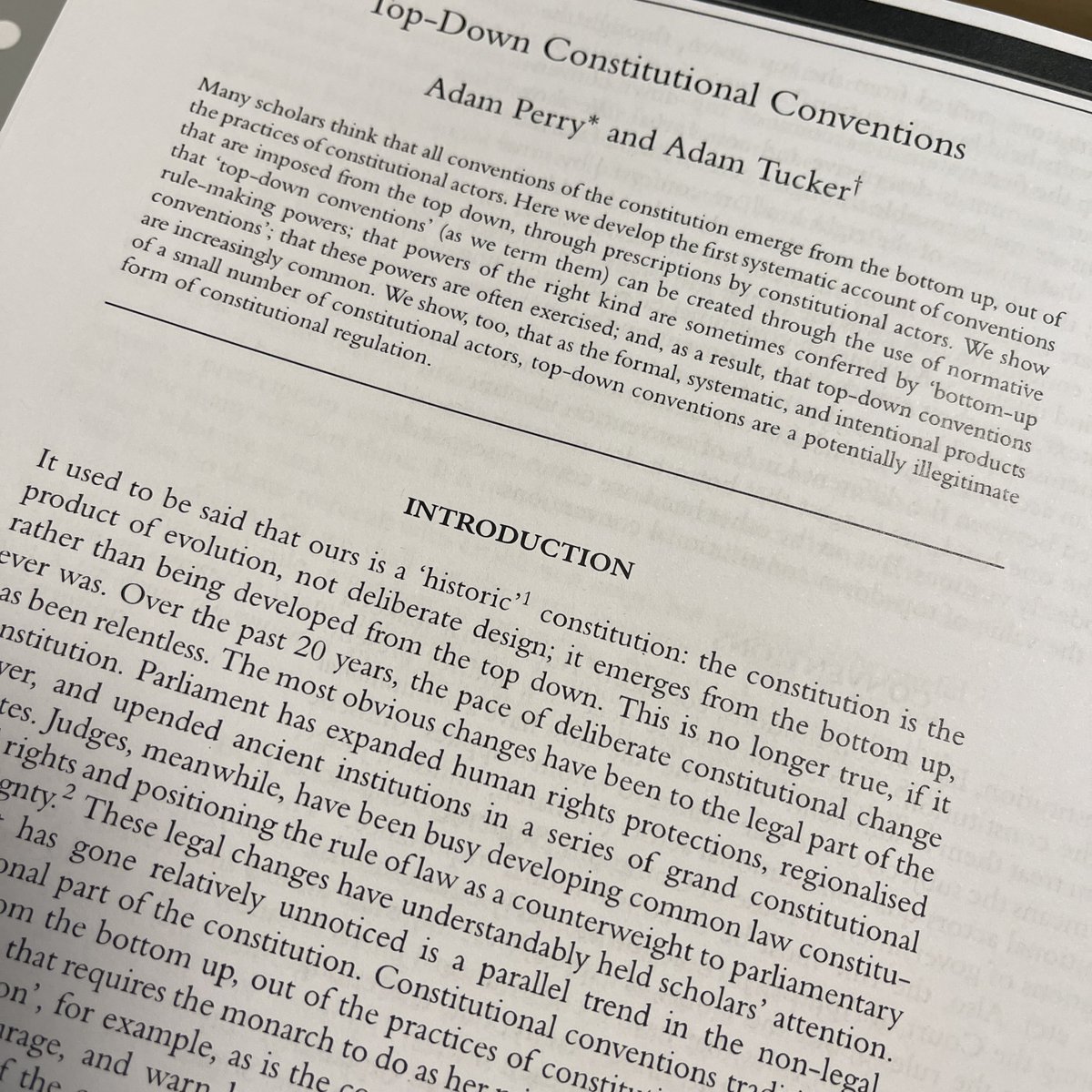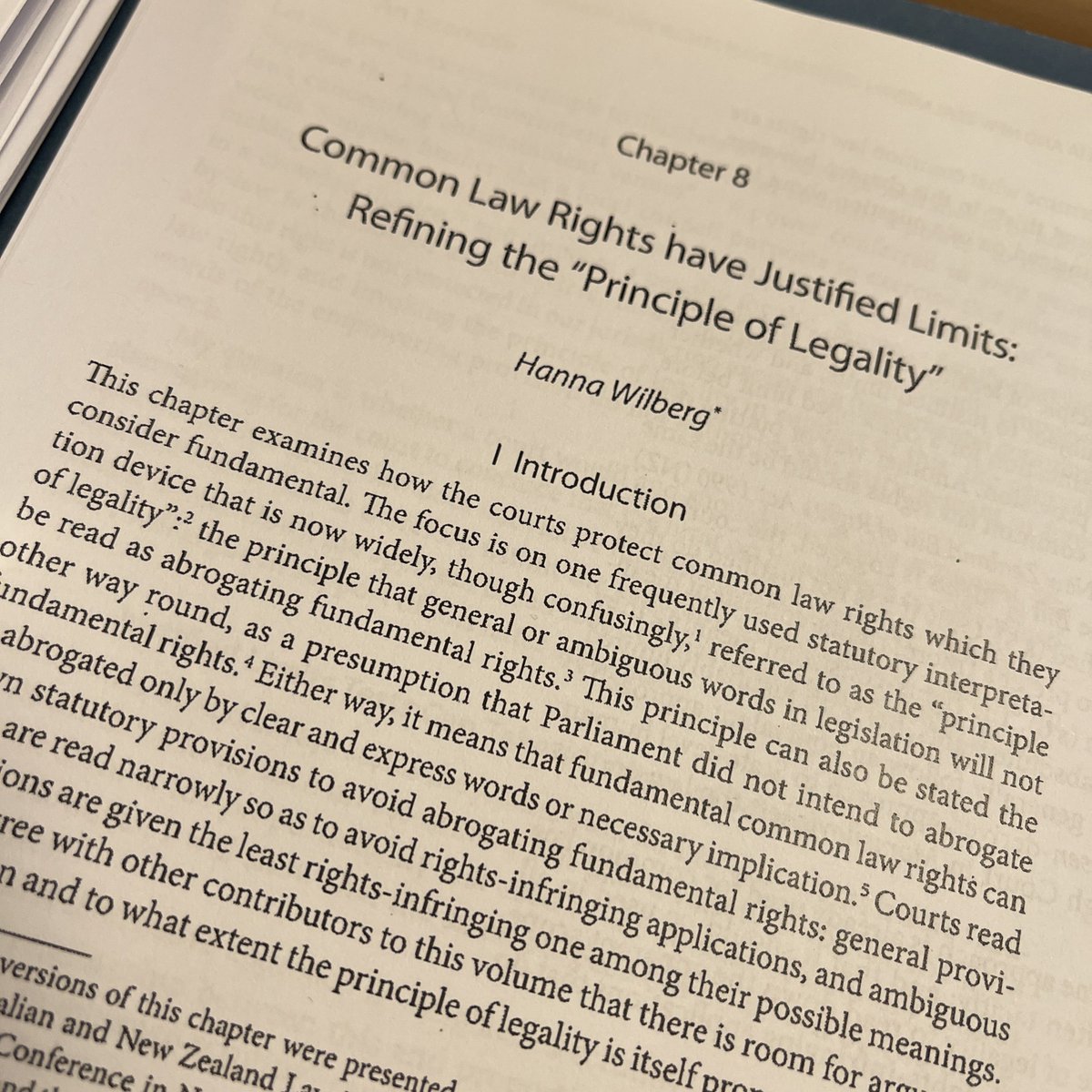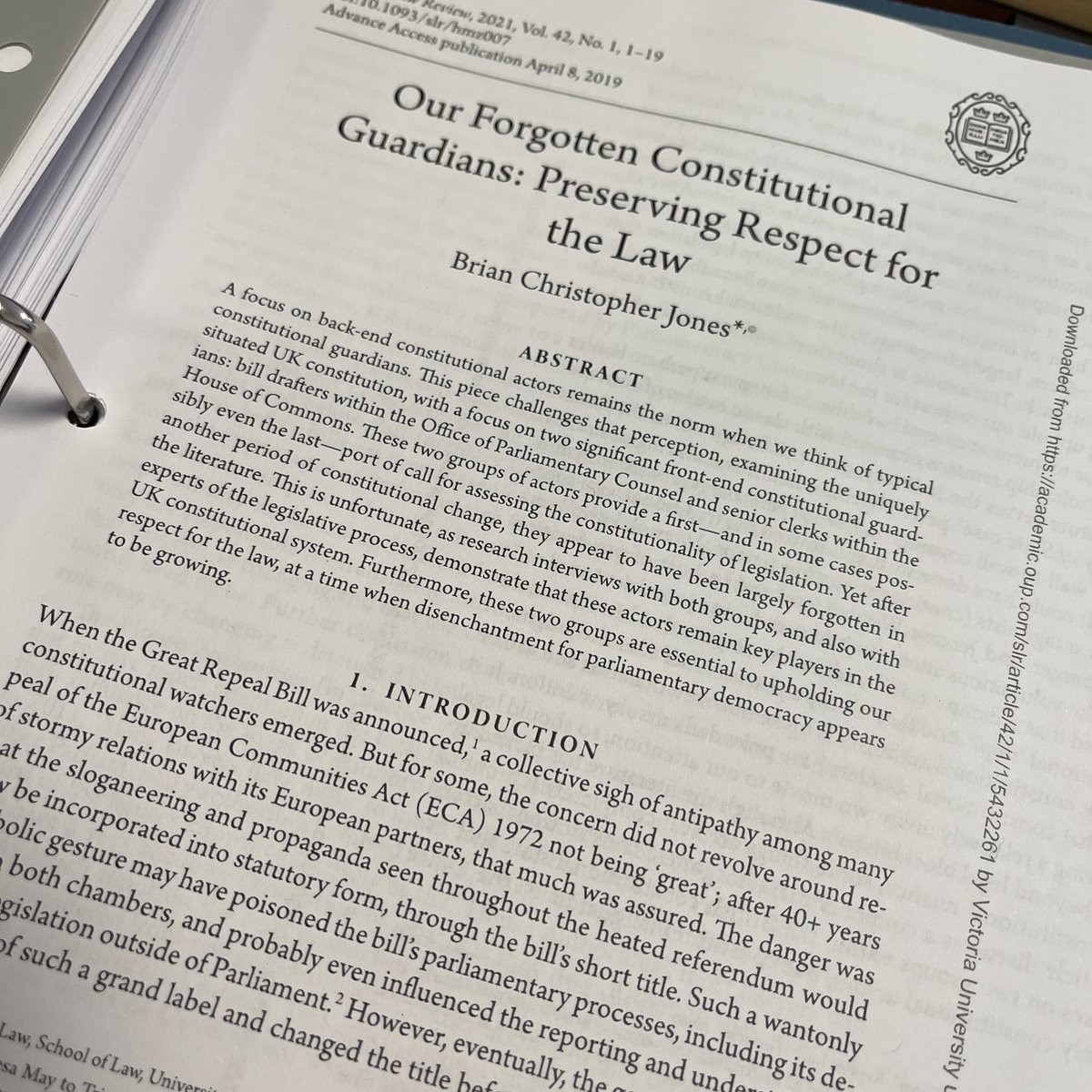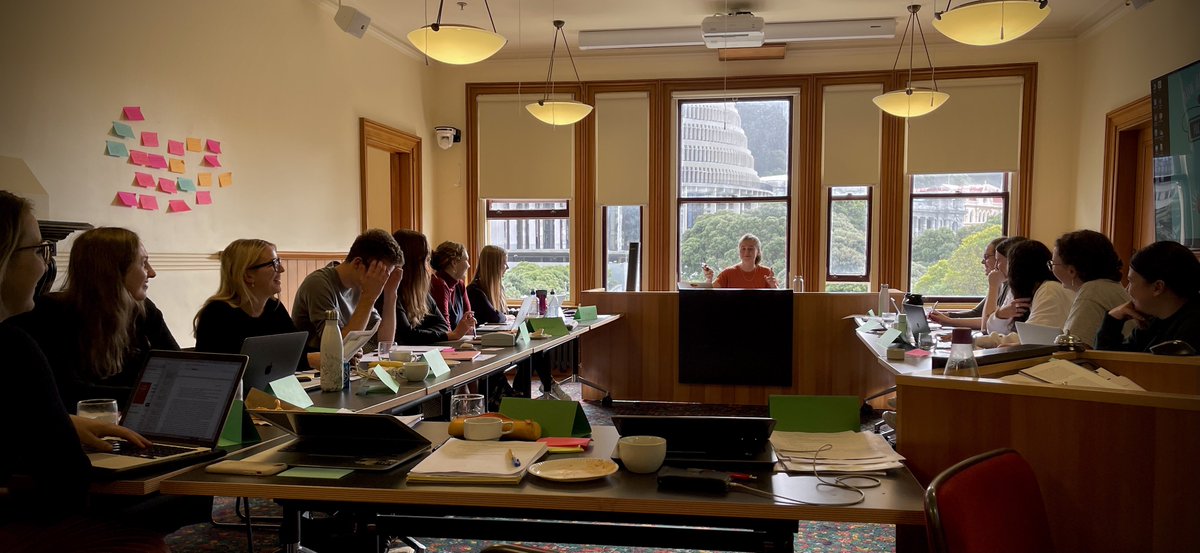Our #laws522 postgrad class @VicUniWgtn convenes today to dive into and critique some hot public law scholarship — ideas, anatomy, argument and context. Always an exciting (and heady) day! 🤓
First up @PeterTMcKenzie, grappling with McLean’s sketch of NZ’s political (“insider, elite”) constitution - and the threat from legalism.
#laws522
#laws522

Next, @HannahReynecke dips into Harlow’s piece on the (redundant?) public—private divide — and challenges in bridging the spheres, esp in context of digitisation. (But what of te Tiriti?)
#laws522
#laws522

Next, #Olivia leads us through @jenraso’s important work on administrative justice — reminding us of the need to interrogate the street-bureaucracy and the value of the socio-legal lens.
#laws522
#laws522

And @ALMarshallNZ explores @GeiringerC’s piece on the migration of constitutional ideas — through a case study of the role John Hart Ely’s thinking played in the design of the NZ Bill of Rights (and some of the insider elites’ subsequent amnesia…).
#laws522
#laws522

After our cuppa, Georgia takes us through Ruru & Kahu-Morris’ invitation for constitutional transformation to ground Te Tiriti at the heart — woven in song: Maranga Ake Ai. 🎶
#laws522
#laws522

Next, @maisybentley deconstructs the argument by @ad_perry and @AdamJTucker about the genesis of constitutional conventions — and the bottom-up versus top-down rule-of-recognition debate.
#laws522
#laws522

And Cate follows with a powerful but diplomatic critique of Loughlin’s address on the political constitution — and how legal thinkers have played around with the idea since Griffith.
#laws522
#laws522

Next, @NicolaWalsh1999 chaperones us through the enforceability of manner-and-form provisions, as explained by @timshiels & Geddis — their take on the thinking about procedural entrenchment, esp post-Ngaronoa.
#laws522
#laws522

Next, Emma picks up @MamariStephens’ wonderful article on Māori constitutional culture — seen, in part, through the lens of the legal Māori corpus. Interesting reflections on the power of the project, both in this particular piece and more generally.
#laws522
#laws522

Now, @jltuuta looks at Wilberg’s chapter on the principle of legality — esp the role justified limits might play in the doctrine.
#laws522
#laws522

And Natalie takes us through an article by an “unnamed author” on contextual review — critiquing the way it showcases instinctive review and measures it against a Fullerian rule-of-law framework. No awkwardness at all. 😎
#laws522
#laws522

Next, Alex dives into @pauldalyesq’s article on admin law values, reflecting on the way it seeks to reveal underlying values in common law judicial review doctrine.
#laws522
#laws522

Now, @MallochHanna grapples with @bchristophjones’ thought-provoking article on constitutional guardians — and the role that law drafters and parliamentary clerks might play in enduring constitutional propriety.
#laws522
#laws522

And Jess dips into our final piece, from @ProfMarkElliott on the constitutional politics of Miller 2 — reflecting on the way the article makes its claims about the soundness of the decision.
#laws522
#laws522

• • •
Missing some Tweet in this thread? You can try to
force a refresh











